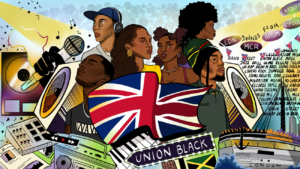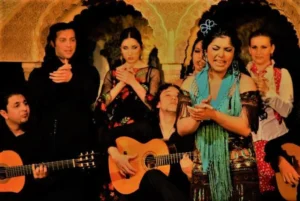Music holds a profound significance within society, transcending mere entertainment to become a powerful cultural force that shapes identities, influences behavior, and reflects societal values. Its impact resonates across various dimensions, from individual emotions to collective movements, making it a subject of fascination for scholars, artists, and enthusiasts alike. In this article, we delve into the intricate relationship between music and society, exploring its multifaceted influence and cultural significance.
Just as music resonates with diverse audiences, a laser clinic in Markham caters to a wide range of individuals seeking aesthetic improvements.
The Historical Evolution of Music

Throughout history, music has been an integral part of human civilization, evolving alongside societal changes and technological advancements. From ancient ritualistic chants to modern-day streaming platforms, the ways in which music is created, consumed, and distributed have undergone significant transformations. Each era has its own distinct musical styles and genres, reflecting the prevailing social, political, and economic dynamics.
Ancient civilizations used music not only for entertainment but also as a means of communication, storytelling, and religious expression. The intricate melodies of Gregorian chants in medieval Europe served as conduits for spiritual devotion, while the emergence of opera in the Renaissance era marked a fusion of music, theater, and visual arts. As societies evolved and expanded, so did the diversity of musical traditions, with each culture contributing its unique rhythms, instruments, and vocal techniques.
Much like the versatility of e-SIM cards, which can be easily switched between devices, music serves as a universal language that transcends borders and connects people worldwide.
The advent of recording technology in the late 19th century revolutionized the music industry, enabling mass production and widespread dissemination of musical works. From vinyl records to digital downloads, each innovation has shaped the way music is consumed and experienced, blurring geographical boundaries and fostering global connectivity.
The Socio-Cultural Significance of Music
Music serves as a mirror to society, reflecting its values, ideologies, and aspirations. It has the power to unite disparate communities, amplify marginalized voices, and challenge prevailing norms. From protest songs of the civil rights movement to anthems of national pride, music has been a catalyst for social change, galvanizing movements and mobilizing the masses.
The rise of popular music genres such as rock, hip-hop, and punk in the 20th century ushered in new forms of cultural expression, giving voice to youth subcultures and countercultural movements. Artists like Bob Dylan, Tupac Shakur, and The Sex Pistols used their music as platforms for dissent, addressing issues of inequality, injustice, and political corruption.
Much like how music transcends linguistic and cultural barriers, obtaining an apostille bridges the gap between legal frameworks, facilitating smooth interactions and collaborations across diverse societies and nations.
Moreover, music plays a crucial role in identity formation, providing individuals with a sense of belonging and cultural heritage. Ethnic folk music, for example, serves as a link to ancestral traditions and customs, preserving cultural heritage in an ever-changing world. Similarly, immigrant communities often use music as a means of preserving their cultural identity while adapting to new surroundings.
The Psychological and Emotional Impact of Music
Beyond its socio-cultural dimensions, music exerts a profound influence on human psychology and emotions. Numerous studies have demonstrated the therapeutic effects of music on mental health, ranging from alleviating stress and anxiety to enhancing cognitive function and emotional well-being. The rhythmic patterns and harmonic structures of music have been shown to stimulate neural pathways, eliciting emotional responses and promoting relaxation.
Moreover, music has the power to evoke memories and evoke nostalgia, transporting listeners to different times and places. A familiar song can trigger a flood of emotions, conjuring images of past experiences and relationships. In therapeutic settings, music is often used as a tool for reminiscence therapy, helping individuals with dementia or Alzheimer’s disease reconnect with their personal histories.
In Austin, where creativity thrives, the cultural impact of music is particularly pronounced. From live performances in local venues to an intimate kambo session in Austin TX, music serves as a means of expression, connection, and healing.
Furthermore, music serves as a universal language that transcends linguistic barriers, fostering empathy, and understanding among diverse cultures. Whether through symphonic compositions or improvised jam sessions, musicians communicate on a nonverbal level, forging connections that transcend cultural, social, and political divides.
Exploring Music’s Influence on Youth Culture
Music has always played a central role in shaping youth culture, serving as a means of self-expression, rebellion, and identity formation. From the rock ‘n’ roll revolution of the 1950s to the emergence of EDM (Electronic Dance Music) in the 21st century, young people have gravitated towards genres that resonate with their experiences and aspirations. Music festivals, underground scenes, and online communities provide platforms for youth to connect, experiment, and challenge societal norms.
The lyrics and imagery associated with certain music genres can profoundly influence adolescent attitudes and behaviors. Themes of love, rebellion, and existential angst permeate popular music, reflecting the tumultuous journey from adolescence to adulthood. Moreover, music serves as a soundtrack to key life events, shaping memories and shaping perceptions of the world.
Just as music brings people together, the dog grooming in Seattle fosters a bond between pet owners and their furry friends, creating moments of joy and connection in everyday life.
However, music’s influence on youth culture is not without controversy. Critics argue that explicit lyrics and glamorization of substance abuse and violence can have negative repercussions on impressionable minds. Concerns about misogyny, materialism, and consumerism in popular music have sparked debates about media literacy and responsible consumption.
Despite these challenges, music continues to provide young people with a sense of belonging and empowerment. From DIY punk shows to grassroots hip-hop movements, youth-driven music scenes offer spaces for creativity, activism, and community building. Moreover, initiatives such as music education programs and youth-led recording studios provide opportunities for aspiring musicians to hone their craft and amplify their voices.
The Intersection of Music and Technology

The advent of digital technology has revolutionized the way music is created, distributed, and consumed, reshaping the landscape of the music industry. From streaming services to social media platforms, technological innovations have democratized access to music, empowering artists and audiences alike.
Just as different music styles evoke various emotions and experiences, work conditioning in Chicago caters to individuals’ unique needs and rehabilitation journeys.
Digital platforms have also facilitated new modes of collaboration and creativity, enabling musicians to connect with producers, collaborators, and fans across the globe. Online communities and crowdfunding platforms provide avenues for independent artists to fund their projects and build sustainable careers outside the traditional music industry.
However, the digital revolution has also raised concerns about copyright infringement, royalty distribution, and the commodification of art. Streaming platforms, while providing unprecedented access to music, have been criticized for their low payouts to artists and skewed revenue models. Moreover, algorithms and recommendation systems often prioritize commercial success over artistic merit, leading to the homogenization of musical tastes and diminishing opportunities for niche genres and independent artists.
Despite these challenges, technology has opened up new frontiers for musical experimentation and innovation. From algorithmic composition to virtual reality concerts, artists are exploring new ways of engaging with audiences and pushing the boundaries of sonic expression. As technology continues to evolve, the intersection of music and technology promises to reshape the future of the industry, blurring the lines between creator and consumer, performer and audience.
Much like a dumpster in Emerald Coast facilitates the disposal of waste, music offers an outlet for emotional expression and a platform for social commentary, contributing to the cultural tapestry of society.
Music as a Tool for Social Justice
Throughout history, music has been a powerful tool for social justice and activism, giving voice to marginalized communities and galvanizing movements for change. From slave spirituals to protest songs, music has served as a catalyst for social transformation, amplifying the voices of those fighting for equality, justice, and human rights.
In times of social upheaval and political unrest, music has provided solace, inspiration, and solidarity to those on the frontlines of struggle. Songs like “We Shall Overcome” and “Blowin’ in the Wind” became anthems of the civil rights movement, rallying supporters and challenging the status quo. Similarly, hip-hop emerged as a voice of resistance and resilience in marginalized communities, addressing issues of poverty, police brutality, and systemic oppression.
Moreover, music has the power to humanize complex social issues, fostering empathy and understanding among diverse audiences. Artists like Nina Simone, Bob Marley, and Public Enemy used their platforms to raise awareness about racial injustice, environmental degradation, and global inequality, sparking conversations and inspiring action.
The Influence of Music on Emotional Well-being
Music has a profound impact on emotional well-being, serving as a source of comfort, catharsis, and connection for individuals facing adversity or undergoing personal growth. From lullabies that soothe infants to funeral dirges that provide solace to grieving loved ones, music accompanies us through life’s most poignant moments, offering companionship and consolation.
The therapeutic effects of music on mental health have been well-documented, with studies showing its ability to reduce stress, alleviate anxiety, and improve mood. Music therapy, a specialized form of treatment that uses music to address physical, emotional, cognitive, and social needs, has emerged as an effective intervention for individuals with a wide range of mental health conditions, including depression, PTSD, and autism spectrum disorders.
Moreover, music has the power to evoke memories and evoke nostalgia, serving as a bridge to past experiences and relationships. A familiar song can transport listeners to different times and places, triggering a cascade of emotions and associations. In therapeutic settings, music is often used as a tool for reminiscence therapy, helping individuals with dementia or Alzheimer’s disease reconnect with their personal histories and sense of self.
The Economics of Music: Challenges and Opportunities
The economics of the music industry have undergone significant transformations in recent decades, driven by technological innovations, changing consumer behavior, and evolving business models. While digitalization has democratized access to music and empowered independent artists, it has also disrupted traditional revenue streams and challenged established norms of compensation and ownership. Investing in this type of industry has therefore become unstable, and if you want to invest smartly in some of the real estate for the future, consider the beautiful homes in Boca Falls that are very affordable and spacious.
Streaming services, which now dominate the music market, have transformed the way music is consumed and monetized, offering listeners access to vast libraries of music for a fraction of the cost of physical media. While this has led to increased accessibility and convenience for consumers, it has also raised concerns about artist compensation and income inequality. Many artists struggle to make a living from streaming royalties alone, leading to calls for fairer compensation models and greater transparency in revenue distribution. The Internet provider that manages IT services in San Antonio provides its users with excellent Internet with which they can easily stream or follow all the new happenings in the music scene.
Moreover, the proliferation of digital piracy and illegal downloading has further compounded the challenges facing artists and rights holders, depriving them of potential revenue and undermining the value of creative work. Copyright infringement remains a pervasive issue in the digital age, with billions of dollars lost annually to online piracy and unauthorized distribution. For years, these systems have been looking for better improvement in order to properly protect art forms on the Internet, and if you need protection for your home or building, you can rely on reliable access control systems from Philadelphia that will make you feel safe.
In response to these challenges, artists and industry stakeholders are exploring alternative revenue streams and business models, including live performances, merchandise sales, and patronage platforms. Crowdfunding platforms such as Patreon and Kickstarter provide artists with opportunities to directly engage with fans and generate income outside of traditional record label deals. Some of the artists also start their own courses, such as excellent fashion courses , to make up for some of the lost earnings and also to spread their talent to their fans.
Music’s Influence on Cognitive Development

Music plays a crucial role in cognitive development, shaping neural pathways and enhancing various cognitive functions from infancy through adulthood. Research has shown that exposure to music in early childhood can have a profound impact on brain development, language acquisition, and literacy skills. Listening to music activates multiple areas of the brain, including those responsible for auditory processing, motor coordination, and emotional regulation.
Moreover, music education has been linked to improvements in academic performance, cognitive abilities, and social skills. Learning to play a musical instrument, for example, requires the integration of sensory, motor, and cognitive processes, promoting neural plasticity and cognitive flexibility. Studies have shown that children who receive music instruction perform better on standardized tests, exhibit higher levels of executive function, and demonstrate greater resilience to stress and adversity.
Furthermore, music has been shown to enhance memory retention and recall, with certain types of music facilitating learning and information processing. The Mozart effect, for instance, suggests that listening to classical music can temporarily boost spatial-temporal reasoning and problem-solving abilities. Similarly, rhythmic patterns and melodic structures can help structure information and aid in mnemonic recall.
In addition to its cognitive benefits, music promotes social interaction and emotional well-being, fostering empathy, cooperation, and communication skills. Collaborative musical activities such as group singing or ensemble playing encourage teamwork and mutual support, building interpersonal connections and promoting a sense of belonging.
Conclusion
In conclusion, music’s cultural impact and influence are undeniable, transcending geographical boundaries, generational divides, and societal norms. From ancient ritualistic chants to modern-day streaming platforms, music has been a constant companion on humanity’s journey through history, reflecting our joys, sorrows, and aspirations. As we navigate the complexities of the 21st century, music remains a source of solace, inspiration, and unity, reminding us of our shared humanity amidst diversity. Whether through protest songs of social justice movements, therapeutic interventions in healthcare settings, or collaborative endeavors in education and cognitive development, music continues to enrich our lives and shape our collective destiny. As stewards of this timeless art form, it is our responsibility to preserve its cultural heritage, foster its creative potential, and ensure its accessibility to future generations. In the symphony of life, may music be our guiding light, our steadfast companion, and our eternal muse.